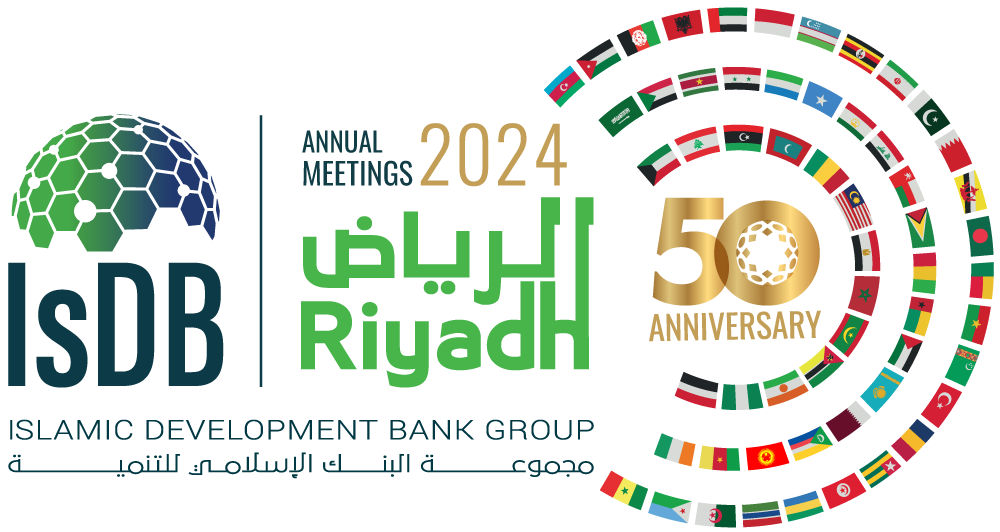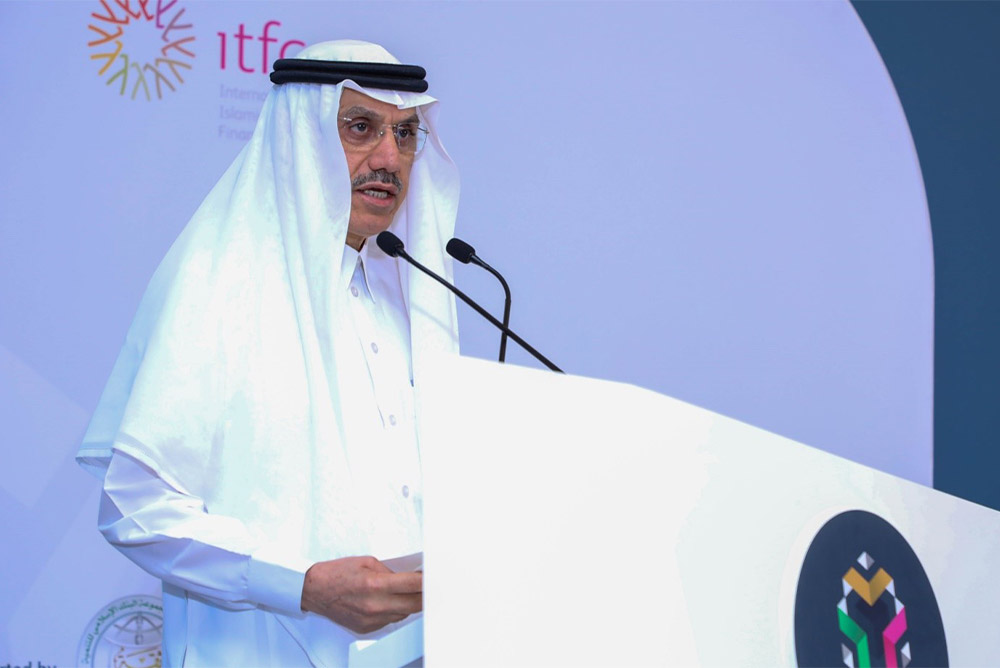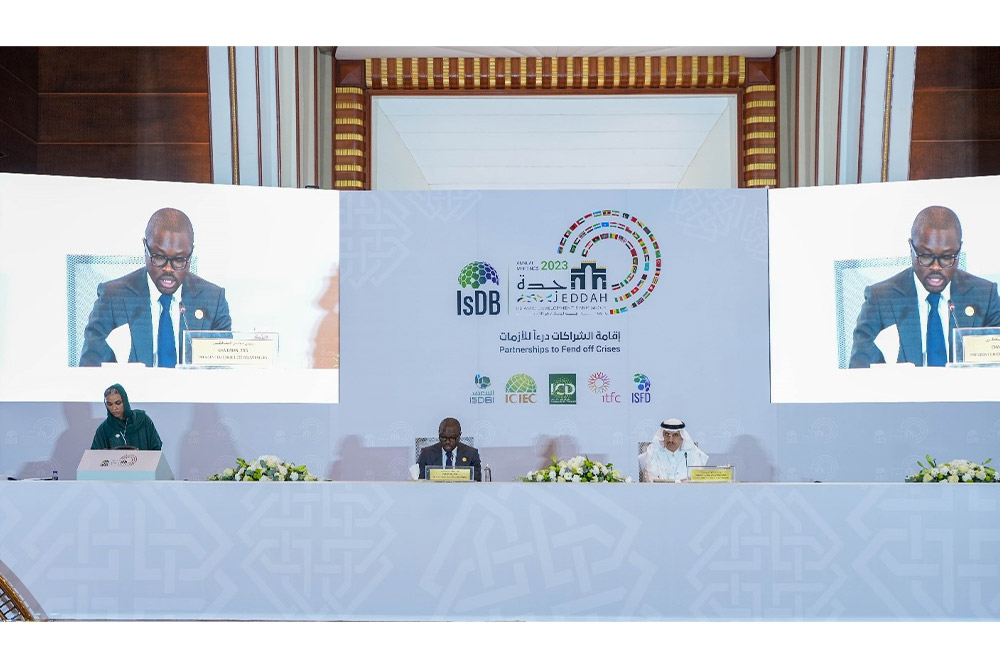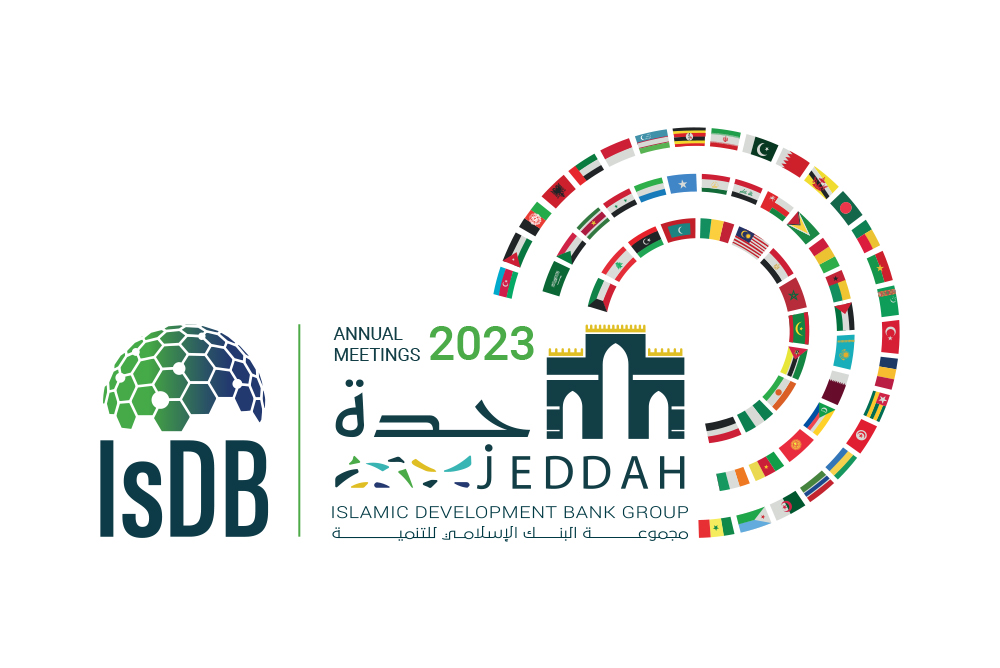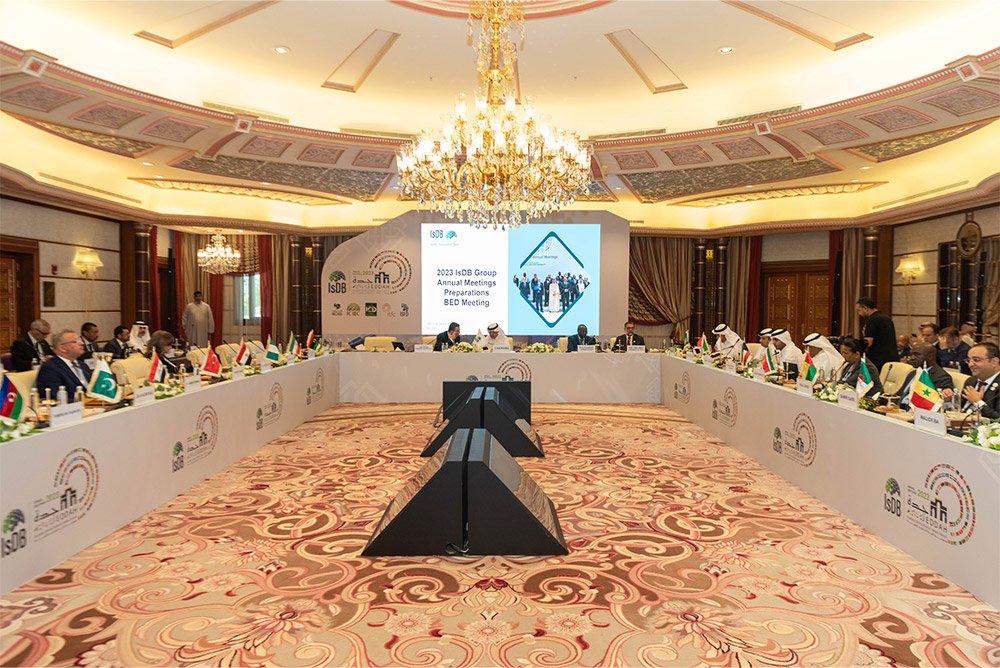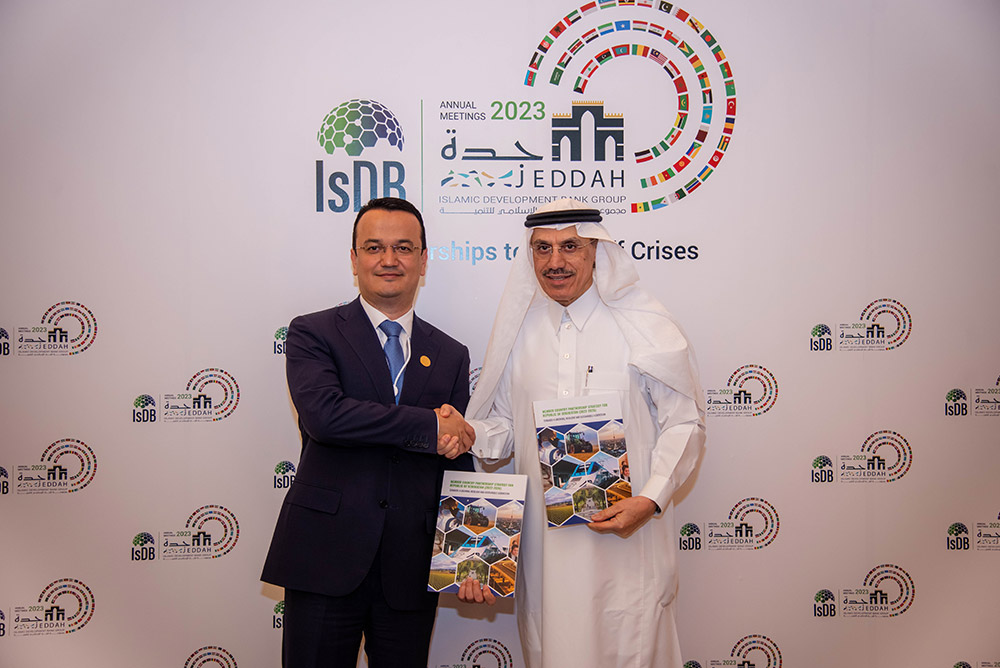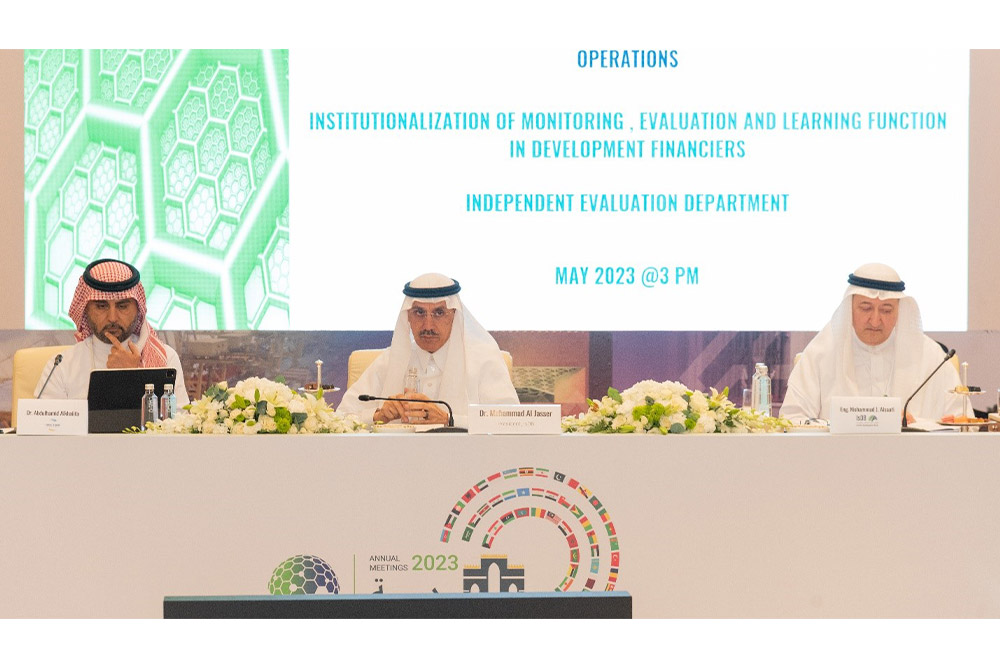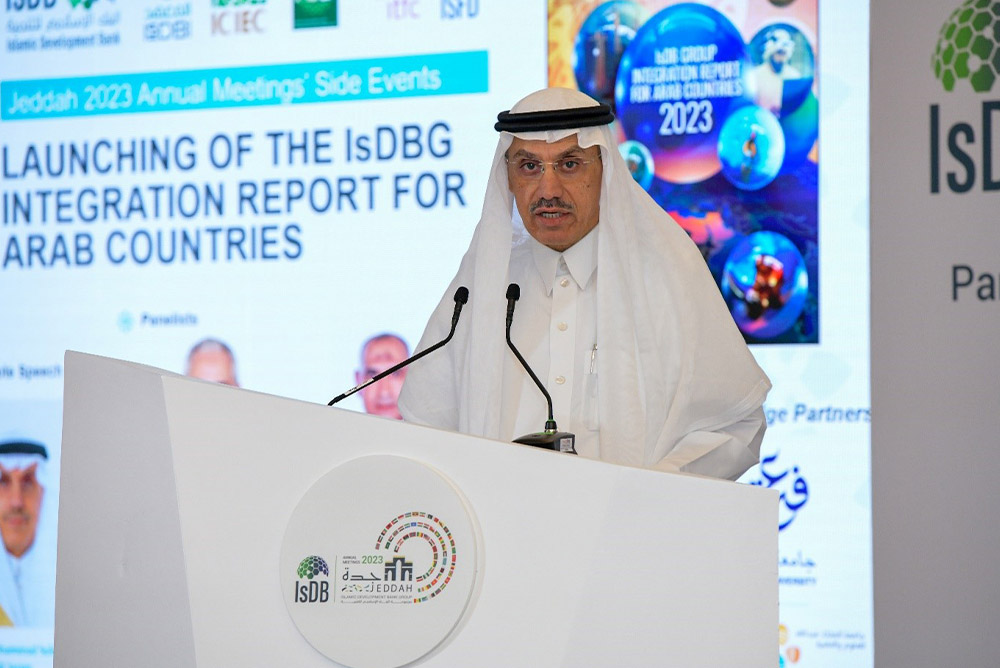JEDDAH, Kingdom of Saudi Arabia, 11 May 2023 – In conjunction with the IsDB Group Annual Meetings underway in Jeddah, Kingdom of Saudi Arabia, the Islamic Development Bank (IsDB) and its affiliated private sector institutions launched the 11th edition of the Private Sector Forum (PSF).
Taking place from 11-13 May 2023 at a dedicated PSF Pavilion within the King Abdullah Congress Center-Ritz Carlton Hotel, Jeddah, PSF serves as a solution-oriented medium to connect global business communities. The three-day event seeks to provide the participants with a chance to establish and consolidate commercial relationships, and to network and explore trade opportunities available within IsDB Member Countries (MCs) and its partners.
Held under the theme of “Partnerships to Fend off Crises,” the 11th edition of PSF is set to be attended by more than 2,000 people from 80+ countries, providing an engaging platform for participants to listen to more than 70 industry experts speak during the forum’s sessions.
With the aim of further encouraging economic and social development among IsDB member countries, PSF 2023 also covers the ongoing initiatives, programs and support provided by IsDB in its 57 member countries.
In his keynote speech at PSF opening ceremony, IsDB President and Group Chairman, H.E. Dr. Muhammad Al Jasser, said: “The IsDB Group’s Private Sector Forum is a collaborative, forward-thinking event by which attendees are able to convene and discuss key developments related to private sector growth. We also aim to give PSF participants the chance to explore solutions for specific economic challenges including investment insurance and export credit implementation which are key to supporting growth and development. We look forward to providing a fantastic event as we explore the next steps in enhancing connectivity among global business communities.”
The inaugural session of PSF under the theme “Building Resilience through Private Sector Partnerships,” showcased how partnerships within the private sector are pivotal to achieving the IsDB Group’s private sector strategy. The session explored concrete cases of effective PPPs, saw examples of synergy between private sector entities and aimed to seek collaboration to address pressing development issues.
Combining its diverse products and expertise in trade finance, risk mitigation, credit enhancement, and long-term financing instruments, IsDB Group’s entities maximize the Group’s value proposition by delivering on its mandates. By fostering an environment that encouraged collaboration and engagement, PSF allows participants to discuss several key challenges which hinder the respective business communities in MCs. The IsDB Group entities include the Islamic Corporation for the Insurance of Investment and Export Credit (ICIEC), the International Islamic Trade Finance Corporation (ITFC), and the Islamic Corporation for the Development of the Private Sector (ICD).

